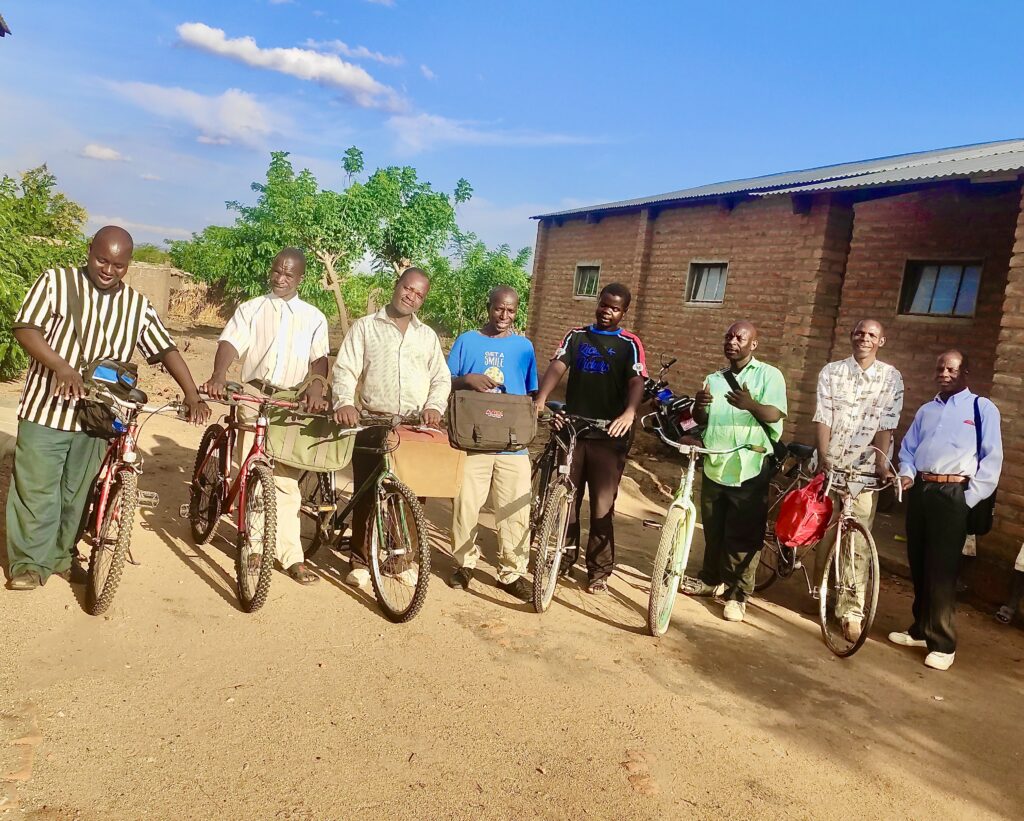Lilongwe, Malawi … In first-world nations purchasing some sort of car, SUV, or other motorized vehicle is within the reach of most families. However, in emerging world nations like Malawi, cars are something the vast majority will never own, or even drive. Even for public officials, doctors, lawyers, tribal leaders, and prosperous businesspeople the cost and upkeep of owning a car is out of reach. In fact, most people in these countries walk everywhere they go or pay to ride an overcrowded, and dangerous, min-bus to their destination.
A major program of the Malawi Project (MP) and Action for Progress (AfP) has to do with agricultural development. It is designed to assist small farmers to realize higher crop yields and cash benefits from improved programs, and modern techniques. This program seeks to help communities become free of hunger. To make these programs successful, local volunteers help mobilize smallholder farmers into effective groups to carry out valuable training. Their success depends on a highly motivated group of leaders who help build the teams who work to reach the objectives.
At Joseph Project 2, a highly successful farm program of food development and crop storage north of the capital, a 10-member committee of volunteers moves from place to place in the catchment area to assist the farmers. They must often walk 2 or more kilometers on foot, day in and day out, in burning heat, pouring rain, or in the dead of night to reach project sites.
With assistance from Orphan Grain Train, based in Norfolk, Nebraska, a recent donation of much-needed food was received at the Lilongwe warehouse. Included in the shipment were several bicycles to assist with the transportation problem. Upon receiving the bicycles, the members of the committee expressed their appreciation and joy with such a gift.
“This will help us to serve better and reach out to distant places more effectively,” said Mapira Banda, chairperson for the farm committee.
Dick Stephens, a co-founder of the Malawi Project, observes, “All too often I have watched workers in Malawi travel for hours just to reach the destination, a trip that in the states would be measured in mere minutes. One would be astonished if all the hours could be added up that are lost in the transportation shortfall. These bicycles will increase the productive hours on site, as well as bring a new measure of excitement to the efforts of those who are making the Joseph Projects successful.”
In recent years the emergence of bicycle taxis in many African countries reflects a high demand for transportation. According to World Bicycle Relief, “Malawi is one of the poorest nations on the planet, with 71% of its people living on less than US $2.00 per day. A lack of efficient, reliable transportation adversely affects economic development.”

